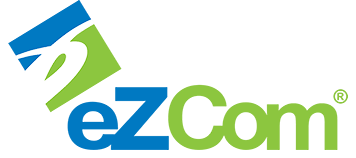Electronic Data Interchange, or EDI, is largely universal across industries. That said, a number of industries have their own nuances and requirements when it comes to EDI. The grocery industry has a handful of industry-specific EDI documents and document sets.
Here’s a quick overview.
Grocery Industry-Specific EDI Documents
Grocery Products Purchase Order (EDI 875)
Grocery retailers may use the EDI 875 to place orders with suppliers. It includes details about the products being ordered, such as item numbers and quantities.
Grocery Products Invoice (EDI 880)
If the 875 order is used, suppliers will use the EDI 880 to request payment for products shipped. It includes details such as item numbers, quantities, and prices of the products delivered.
Ship Notice/Manifest (EDI 856)
Suppliers send the EDI 856 to the buyer to provide shipping details. While the EDI 856 is not specific to grocery transactions, when used in conjunction with the grocery EDI 785 and EDI 880, it can include product expiration dates and lot numbers when the retailer requires it. This allows the retailer to ensure product freshness standards of items ordered and to properly rotate stock within their supply chain.
Working Together as a Set
The EDI 875 and EDI 880 form a set that is specific to the grocery industry. They work together to streamline the ordering and invoicing process, ensuring that both parties have all the necessary information and when used with the 856 can communicate the products’ lot numbers, and expiration dates.
General EDI Document Sets
Besides the grocery-specific documents, there are other common EDI document sets used across various industries. Examples include…
Purchase Order (EDI 850), Ship Notice/Manifest (EDI 856), Invoice (EDI 810)
This set is used broadly across many industries. The buyer uses the EDI 850 to place an order. The supplier then sends the EDI 856 document, providing shipping details. (Note: The 856 can also be created from the 875 when supported by the retailer. Expiration dates and lot numbers can be included when a retailer supports them as well. Finally, the supplier sends the EDI 810 to invoice for the shipped goods.
Request for Routing Instructions (EDI 753), Routing Instructions (EDI 754)
This set is used to manage the logistics of shipping. The 753 document requests routing instructions from the buyer and the 754 document provides the required routing information.
Timely, Accurate Communication for Grocery-Specific EDI Success
By using these document sets, trading partners can ensure accurate and efficient handling of orders, shipments, and payments, while also maintaining the necessary information about product expiration dates in the grocery industry.
By using these document sets, trading partners can ensure accurate and efficient handling of orders, shipments, and payments, while also maintaining the necessary information about product expiration dates in the grocery industry.
Summary
- 875/880: Grocery-specific EDI documents that handle purchase orders and invoices.
- 850/856/810: General EDI document set for purchase orders, shipping notices, and invoices.
- 753/754: Document set for requesting and providing routing instructions.
These EDI sets help streamline the supply chain process, ensuring timely and accurate communication between trading partners.
Frequently Asked Questions About Grocery Industry EDI
What is the EDI 875 document used for in the grocery industry?
The EDI 875 is the Grocery Products Purchase Order. It allows grocery retailers to place orders with suppliers, including key details like product item numbers and quantities.
What is the EDI 880 document?
The EDI 880 is the Grocery Products Invoice. It’s used by suppliers to request payment for goods ordered via the EDI 875. It includes item details, quantities, and prices.
How is the EDI 856 used in grocery EDI transactions?
The EDI 856, or Ship Notice/Manifest, communicates shipment details. In grocery transactions, it may also include product expiration dates and lot numbers to support freshness and inventory rotation standards.
Can the EDI 875, 880, and 856 work together?
Yes. These documents form a cohesive set in the grocery industry. The 875 initiates the order, the 880 provides invoicing, and the 856 supports shipping and product tracking, including freshness data when required.
Are there general EDI document sets used in grocery?
Yes. The 850 (Purchase Order), 856 (Ship Notice), and 810 (Invoice) are widely used across industries, including grocery, especially if the retailer doesn’t use the 875/880 set.
What are the EDI 753 and 754 documents used for?
The EDI 753 (Request for Routing Instructions) and EDI 754 (Routing Instructions) manage the logistics of shipment. They’re commonly used when buyers want control over how products are shipped.
Why is accurate EDI communication important in grocery?
Timely and accurate EDI ensures that product freshness, inventory accuracy, and compliance with shipping requirements are met—key priorities in grocery supply chains.
Solutions
Lingo Platform
Contact Sales
Contact Support
201-731-1800, Option 2
[email protected]
Monday – Friday
8:30 AM – 8:00 PM Eastern Time


